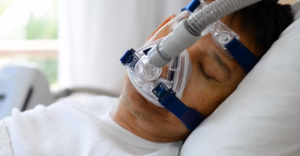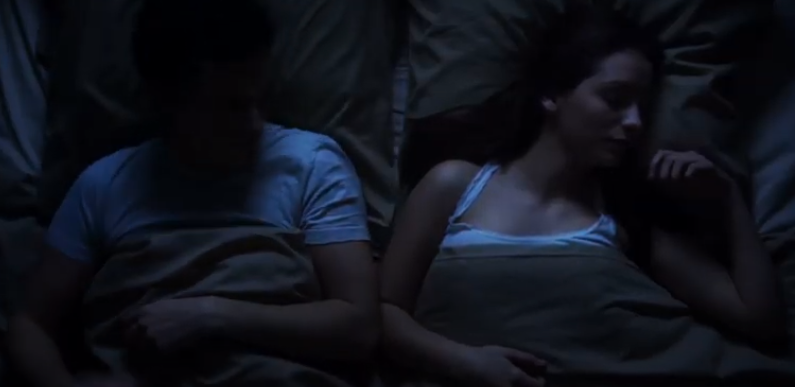Do I have sleep apnea? If so, what are my treatment alternatives?
These are common questions we get at The Mugford Center for Periodontics & Dental Implants in Crofton.
Sleep Apnea, or sleep disruption, is linked with many serious illnesses. Sleep apnea is a common condition in which your breathing stops and restarts many times while you sleep. This can prevent your body from getting enough oxygen. According to the National Heart, Lung and Blood Institute, one common form of sleep apnea is obstructive sleep apnea, which occurs when your upper airway becomes blocked continuously while you sleep, thus reducing or completely stopping airflow.
What is Sleep Apnea?
According to Dr. David Mugford of The Mugford Center for Periodontics and Dental Implants in the Baltimore area, people with sleep apnea are at a much higher risk for strokes, heart attacks, sudden death, depression, obesity, high blood pressure, and fibromyalgia. It can also lead to daytime drowsiness and car accidents.
“We put ourselves at much greater risk when we can’t heal properly during sleeping,” says Dr. Mugford.
The CPAP Machine Treatment Option
One of the most common treatments for sleep apnea is the use of a CPAP (continuous positive airway pressure) machine.
 “If you have moderate to severe obstructive sleep apnea, you might benefit from using a machine that delivers air pressure through a mask while you sleep. With CPAP (SEE-pap), the air pressure is somewhat greater than that of the surrounding air and is just enough to keep your upper airway passages open, preventing apnea and snoring. A CPAP machine forces air that is blown into the nose in order to expand the airways so the air can continually get in during sleep. What happens when we’re sleeping is that the muscles begin to relax, and everything starts to collapse inward, around the neck, including the tongue falling to the back which restricts the airway. The CPAP solution solves this by blowing air through the nose and opening the airway.”
“If you have moderate to severe obstructive sleep apnea, you might benefit from using a machine that delivers air pressure through a mask while you sleep. With CPAP (SEE-pap), the air pressure is somewhat greater than that of the surrounding air and is just enough to keep your upper airway passages open, preventing apnea and snoring. A CPAP machine forces air that is blown into the nose in order to expand the airways so the air can continually get in during sleep. What happens when we’re sleeping is that the muscles begin to relax, and everything starts to collapse inward, around the neck, including the tongue falling to the back which restricts the airway. The CPAP solution solves this by blowing air through the nose and opening the airway.”
However, as Dr. Mugford points out, some people find the CPAP machine cumbersome and uncomfortable. “Compliance on this CPAP machine is very poor. Only about one in five people actually will use the machine because it’s uncomfortable to wear. It has straps on the head. The air flowing in dries out the nose and the noise of the machine also make people less interested in actually using it. So although people are aware that they need help, they really don’t want to use their CPAP machine.”
Oral Appliances to Treat Sleep Apnea
So, is there an alternative treatment that is less cumbersome? Yes. Another option is wearing an oral appliance designed to keep your throat open. Some are designed to open your throat by bringing your jaw forward, which can sometimes relieve snoring and mild obstructive sleep apnea.
“Until recently, we’ve had a limited number of alternatives. One treatment for mild sleep apnea is an oral appliance. An oral appliance is like a bite guard or retainer. It’s worn and it actually props the lower jaw or forward just enough to keep the airway open. Unfortunately, some of the earlier appliances only had success and mild sleep apnea. However, with current research and refinement, particularly with the methodology of Dr. Metz, we can now treat even the most severe sleep apnea patient without a CPAP machine and get at least a good result, if not better without using all of the instruments and machinery, in order to keep the air flowing. Compliance is also much better with the oral appliance.”
Once the sleep apnea is resolved and adequate sleep is achieved, many other health problems can resolve, adds Dr. Mugford. “The patient’s sense of stress is improved and their other medical conditions, especially those related to the heart, can be improved.”
Although many people don’t feel as though they have a breathing issue or sleep apnea, they can feel tired or stressed out and sometimes it’s an undiagnosed sleep problem. The best way to determine if you can be helped with the oral appliance is by doing a sleep screening. A sleep screening can be done in our office using a simple home screening device which is worn on the finger for three nights. Or a sleep study can be performed at a sleep center and they can determine whether or not your lack of sleep is due to a breathing problem.”
Get More Information on Your Night Breathing Condition
At The Mugford Center for Periodontics & Dental Implants in Crofton, Maryland, we have years of experience in sleep apnea and other health issues. Let our team help you take that first step towards healthier sleeping by calling our office today to find out more. Call our office today at (410) 260-0790.

